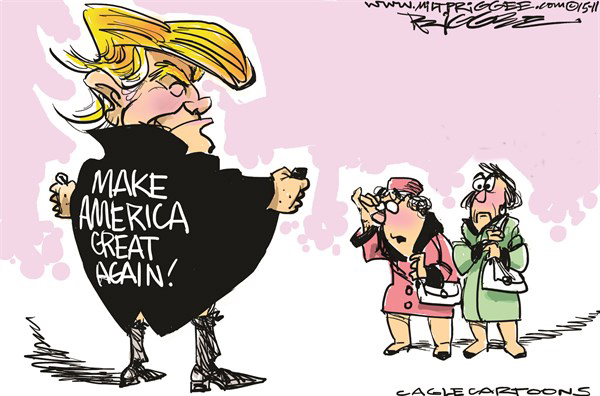
There's a tendency in politics to mistake personal animosity for ideological animosity.
Consider
Oh, he was certainly more liberal in his heart than he let on, but he also worked from the assumption that this was a center-right country, and that limited what he could get away with.
Clinton ran for president the first time by "triangulating" against the base of his own party. He took time off from the campaign to oversee the execution of
And yet, many conservatives insisted he was a no-good hippy left-winger.
And yet, during his presidency -- even before 9/11 -- he was routinely called a heartless right-winger.
In office, he created the
And yet, even today, it's hard to find a liberal who isn't convinced that Nixon was a rabid right-winger. Indeed, Nixon's entire appeal to the "silent majority" was an attempt to forge a populist, big-government alternative to both FDR-LBJ liberalism and Buckleyite conservatism.
Which brings me to
The first part is true: He does pose a threat to the
Until Trump descended his golden escalator, the "conservative base" generally referred to committed pro-lifers and other social conservatives. The term also suggested people who were for very limited government, strict adherence to the Constitution, etc. Most of all, it described people who called themselves "very conservative."
While it's absolutely true that Trump draws support from people who fit such descriptions, it's far from the entirety of Trump's following. According to polls, Trump draws heavily from more secular Republicans who are more likely to describe themselves as "liberal" or "moderate" than "conservative" or "very conservative."
And I would argue that his "very conservative" followers aren't supporting Trump because he's a conservative but because he's a walking, talking thumb in the eyes of "elites" in the media and both parties.
The claim that Trump is a committed conservative is not very believable. Until recently, he was for higher taxes on the wealthy, taking in Syrian refugees and single-payer health care. He almost never talks about the Constitution, faith or liberty unless forced to. In 2012, Trump condemned
With the exception of a few single-issue voters on immigration, Trump fans love him for his enemies and for his populist bombast, not for any specific principles. In other words, he divides the
Trump defenders can rightly point to the fact that he draws support from a wide swath of voters. Critics can rightly point out that he draws animosity from an even wider swath of voters. But neither should go around talking about how Trump represents the conservative base.
Comment by clicking here.
Jonah Goldberg is a fellow at the American Enterprise Institute and editor-at-large of National Review Online.



 Contact The Editor
Contact The Editor
 Articles By This Author
Articles By This Author